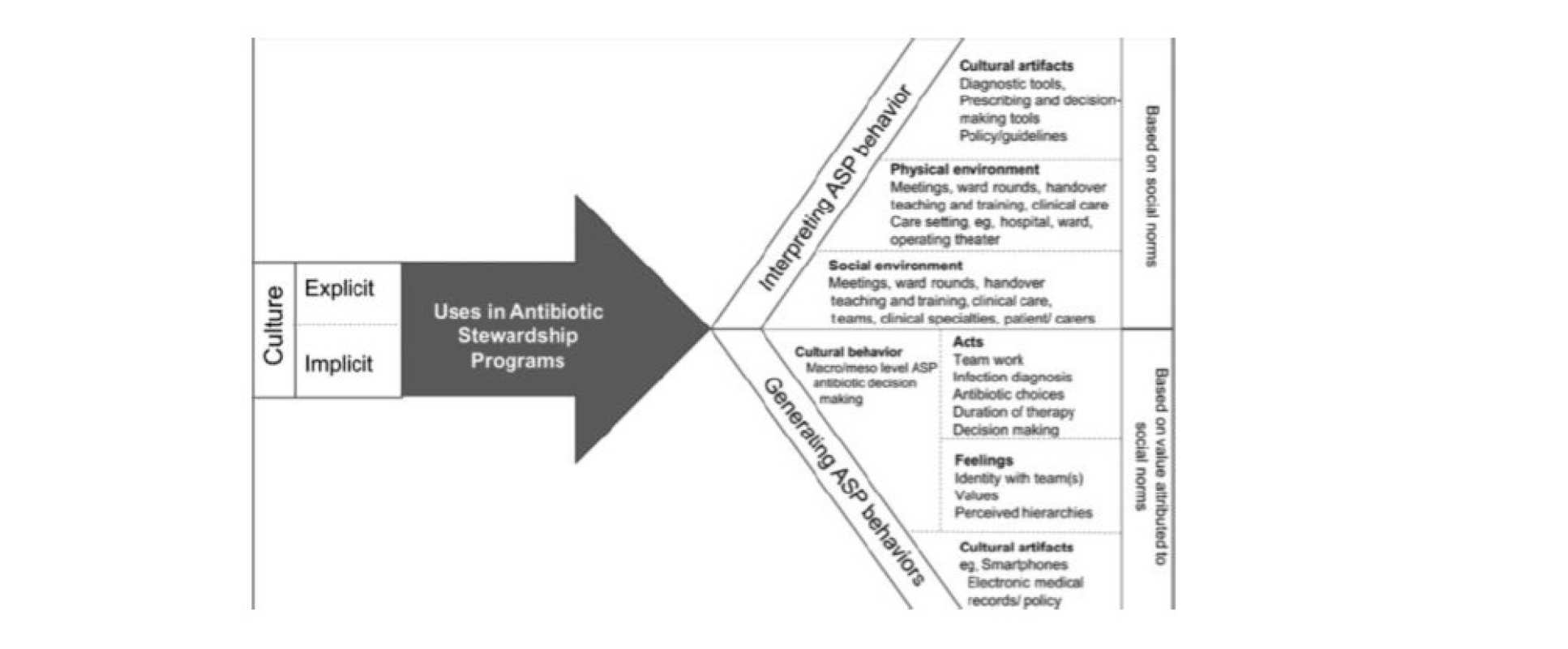
Overarching theoretical approaches
This project offers a comprehensive investigation of Antimicrobial Stewardship (AS) and Infection Control (IC) behaviours approached as a co-construction of individual, organisational and wider contextual factors. The project examines these factors at the micro-, meso- and macro-levels using theoretical approaches from the fields of strategic management, sociology, psychology, and anthropology. To evaluate how appropriate interventions may be successfully adopted and implemented within different contexts, an organising framework of implementation is employed.
A soft systems approach is used for the evaluation of different interventions and policies by mapping interactions and consequences using qualitative and quantitative data. To connect these multi-level and multidisciplinary approaches, the Consolidated Framework for Implementation Research (CFIR) is used as an overarching organising framework as it facilitates understanding of processes of introduction and management of change within a complex healthcare system or pathway and allows for examination of behaviours.
WP2: Roles and context: Ethnographic research
Methods
Ethnographic research involving direct observation of practice along the entire surgical pathway and interviews with stakeholders involved in the pathway will be conducted. This research will draw on the symbolic interactionist research tradition by understanding the division of labour as emerging through social interaction. Data collection will span four months in each country. Direct observations will take place in pre-, intra-, and post-operative settings in outpatient clinics, operating theatres and surgical wards.
Expected impact
- To identify ways of reducing overuse, underuse and misuse of antibiotics, improving quality of care and reducing waste of healthcare resources;
- To promote the efficient design of services by finding solutions along the patient pathway for patients undergoing surgery;
- In the long-term, to contribute to a reduction in costs to patients and society;
- To build research capacity in low- and middle-income countries and the tools to design and evaluate solutions